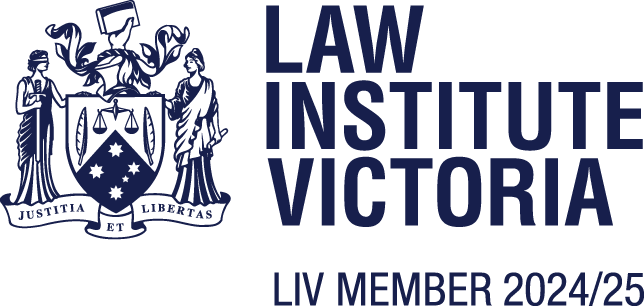An executor is a person appointed in a Will to administer the estate of the Will maker. The estate of a deceased person is the composite of their assets and liabilities. When there is no Will left, the person to deal with the administration of the estate will be somebody appointed by the Court as an Administrator.
The role of executor may seem overwhelming. It is an important role which carries great responsibility and therefore consulting a solicitor to gain clarity, guidance and knowledge so that you make informed decisions is important.
Some of the first duties that arise, in the role of executor include: –
- Locating the most recent original Will;
- Making funeral arrangements;
- Notifying the Australian Tax Office and other relevant bodies such as VicRoads and utility service providers of the deceased’s date of death;
- Cancelling the Will-maker’s services such as shopping deliveries; and
- Arranging for and obtaining the Death Certificate from the Registry of Births, Deaths and Marriages (if not done by the funeral director).
Importantly, the executor is responsible for identifying the assets and liabilities of the estate. Thus, collating documents such as the Will maker’s bank or credit card statements, certificates of title, mortgage documents, unpaid debt notices, private insurance certificates, vehicle registration papers and share and debenture certificates is an important part of the role. Based on this information, a solicitor will then help to obtain further and more specific information where required about the assets and liabilities of the estate.
After the assets have been identified it is equally important to ensure that the estate is preserved. This includes ensuring amounts in bank accounts are accruing interest, arranging insurance, changing locks and keeping records or an inventory of the assets and liabilities of the deceased (and of course, records of the distribution of assets and payments of debts after a Grant of Probate is obtained).
For an executor make title to the deceased’s estate, that is, for an executor to obtain the authority to deal with the assets of the Will maker, a solicitor will help to apply to the Probate Office of the Supreme Court for a Grant of Probate of the Will. An administrator applies for a Grant of Administration. Under section 13 of the Administration and Probate Act 1958 (Vic), upon a Grant being made, the estate of the deceased vests in the executor or administrator as from the date of death of the deceased. This means that the executor or administrator gain legal title to the estate of the deceased.
After a Grant of Probate has been obtained, the duty of an executor is to ensure that, after any estate duties, funeral expenses and estate debts have been paid, that the estate is distributed to the beneficiaries entitled under the Will of the deceased. The executor is also responsible for lodging any outstanding tax returns of the deceased and/or lodging a final tax return for the estate. An estate may be subject to income tax if it earns income above the tax-free threshold such as rent from leased real estate or interest from investments. It is important that all estate liabilities are paid prior to distribution of the estate. Hence, it is also recommended that an accountant be consulted for specific tax advice regarding the deceased estate.
Countless, vital questions can arise in your role as executor such as: –
- What if the estate liabilities exceed the estate assets?
- Can I decline my role as executor?
- What happens and what is my role if a beneficiary or other person contests the Will?
- Can I be paid in my role as executor?
- How long do I have to distribute the estate?
- When will capital gains tax be payable if the estate sells the deceased’s property?
- When are there tax implications for beneficiaries who dispose of property they receive under a Will?
- What if the Will grants a life interest or requires that a trust be set up?
If you have been appointed to the role of executor under a Will, expert legal advice and guidance in the administration of the deceased estate will ensure you make informed decisions and will help to take the stress out of the role.




No comments yet.